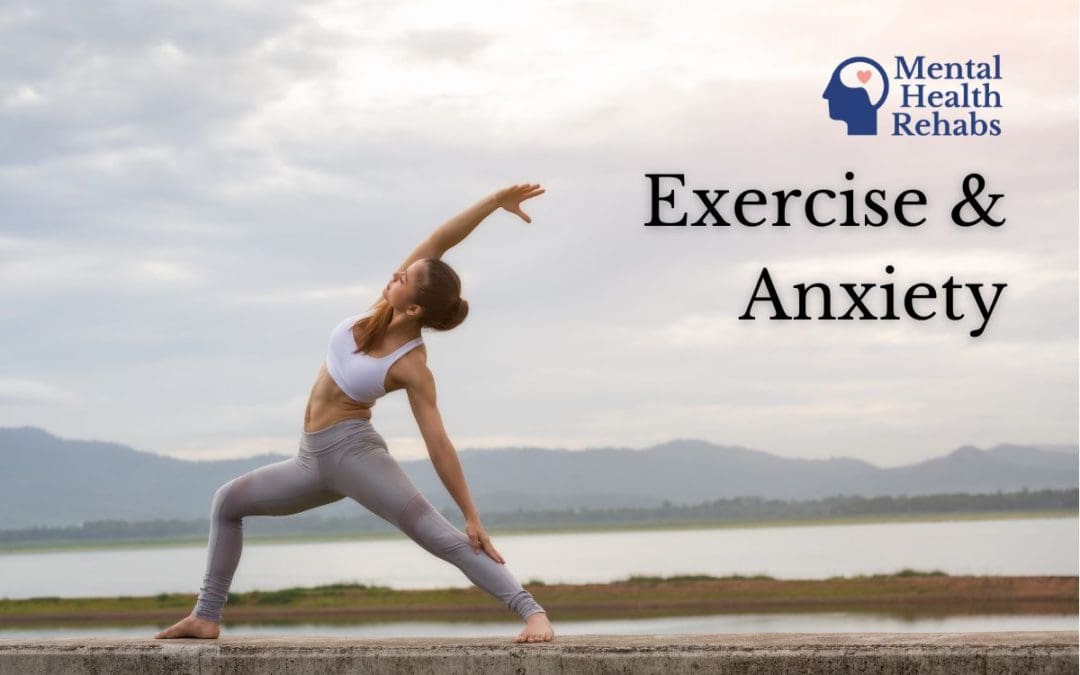If you were to write out a list of all the benefits of exercise, you’d be writing for a while. From improving sleep to delaying Alzheimer’s, just 30 minutes a day of physical activity can help us feel better and live longer. One of the most impressive and far-reaching benefits of exercise is its effects on stress, namely reducing it. And since stress in some shape or form is the cornerstone of many psychological issues, exercise does great things for people with anxiety, which affects nearly 1 out of every 5 adults in America.
Ready to unlock the benefits of exercise for your brain? In this article, we’ll cover how exercise and anxiety are linked to one another, how much exercise you’ll need to do to decrease anxiety symptoms and the types of exercise that offer the greatest mental health benefits.
How does exercise help anxiety and panic attacks?
Anxiety and panic attacks are the results of a misfiring fight-or-flight response, which is itself the activation of the sympathetic nervous system in response to acute stress. Exercise has a multi-pronged approach to overriding the mechanisms responsible for this overactive system.
- Mood-boosting hormones
Exercise produces hormones that improve feelings of happiness and well-being—endorphins, serotonin, and dopamine—and simultaneously reduces the hormones that can leave us feeling on edge and frantic, cortisol and adrenaline. It’s able to help us feel better in the moment, while also equipping us to keep negative feelings at bay in the future.
- Increased norepinephrine (noradrenaline)
Getting physical also increases the production of norepinephrine or noradrenaline. This is helpful as norepinephrine is a monoamine that plays a role in mood stabilization and too low levels of norepinephrine have been directly linked to mental illnesses, anxiety, and depression.
- Decreased cortisol sensitivity
In addition to making us feel great in the short-term, exercise also helps protect us from stress in the future. It accomplishes this by decreasing the number of stress receptors in the hippocampus (the part of the brain responsible for memory) so that when cortisol is present in the body, there are fewer messengers to receive it and trigger the physiological stress response. Overall, it can make the stress response less reactive and reduce the severity or frequency of anxiety and panic attacks.
- Greater physical resilience
Stress is as much physical as it is mental. The fight-or-flight response cues up a host of bodily reactions: heart rate and breathing increase, blood is diverted from nonessential systems to the muscles and brain, and the body’s stores of energy are released to fuel feats of strength (or fleeing). Exercise replicates virtually all of these acts.
That’s why exercise can condition your body to associate the sensation with positive feelings, rather than negative ones. While this may not actively reduce symptoms of anxiety such as panic attacks, it can help make them easier to manage and prevent feelings of stress from being overwhelming.
What are the best exercises for mental health?
The good news is that you aren’t limited to a particular type of exercise to get the mental health benefits. Aerobic benefits appear to have the greatest effect since they require higher exertion on the body, but research also shows that weight lifting (while strenuous, isn’t as demanding as cardio) can also be effective. You don’t necessarily need to push yourself to the brink of exhaustion. Low-impact activities like walking and yoga can still result in those feel-good post-workout feelings.
Good exercises for anxiety will engage both the body and mind, these can include:
- Running
- Brisk walks
- Biking
- Swimming
- Dancing
- Yoga
However, the type of exercise that may be most beneficial to you might not be based on your fitness level, but rather your gender. Researchers found that men experienced more significant mental health benefits when engaging in more intense workouts but women benefited more from lower intensity exercise.
Researchers also noted that people struggling with mental illness could benefit even more from group exercise and working out outdoors.
How long do I need to exercise to get the mental health benefits?
According to the Department of Health and Human Services, the general recommended amount of exercise is 150 minutes of moderate physical activity or 75 minutes of vigorous physical activity per week. Numerous studies support that averaging 30 minutes a day can significantly improve mental illness symptoms. However, exercise can be a powerful mood changer and as little as five minutes of exercise can still help you reap mental health benefits. When in doubt, getting in any exercise at all is better than none.
If you’re working out regularly and still need help managing symptoms of anxiety, find a mental health rehab near you today to speak to a professional that can determine what other courses of action you can take.

